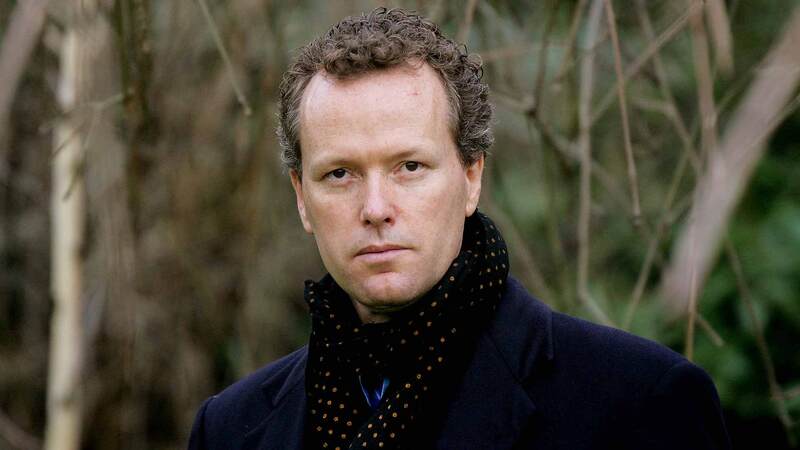You are viewing your 1 free article this month. Login to read more articles.
Bluemoose's Myers wins £25k Walter Scott Prize
Benjamin Myers has won the £25,000 Walter Scott Prize for Historical Fiction with The Gallows Pole, published by small Yorkshire-based independent press Bluemoose Books.
Bluemoose triumphed over some of the UK’s biggest publishing houses to claim the prize with a novel based on of the true story of 18th century counterfeiting gang the Cragg Vale Coiners.
Myers received his £25,000 award from sponsor the Duke of Buccleuch at the Baillie Gifford Borders Book Festival in Melrose, Scotland, on Saturday (16th June).
Assembled from historical accounts and legal documents, Myers' The Gallows Pole is a story of resistance that combines poetry, landscape, crime and historical fiction.
Myers was handed the cheque by last year’s winner Sebastian Barry.
As an added accolade, Myers will also be the subject of a special Royal Mail postmark congratulating him on winning the prize. The postmark will be applied this week to stamped mail that Royal Mail deliver to around 30 million addresses across the UK.
The author (pictured below) thanked his "small but perfectly formed" publisher, and said he would be spending the prize money on "going to see the original line-up of Guns ‘N’ Roses in Reykjavik". He also plans to have a break after publishing seven books in eight years and intends to "sit in his back garden and listen to the birdsong".
Bluemoose founder Kevin Duffy told The Bookseller that the win was "brilliant" because it "shines a light onto Ben's writing and the story of the Cragg Vale Coiners".
He added: "The award is a lifeline for Bluemoose as hopefully increased sales will give us some financial stability and bring new readers to us and they will see what other wonderful books we have for them."
The prize judges consisted of journalists Elizabeth Buccleuch, James Naughtie, Kirsty Wark and Kate Figes, writers Katharine Grant and Elizabeth Laird, the Abbotsford Trust’s James Holloway, and Borders Book Festival director and prize chair Alistair Moffat.
The judges said: "Judging this prize is always tough, and our 2018 shortlist was such a cornucopia of different styles, themes and historical episodes that we had our first ever hung jury and secret ballot. Before the ballot, the judges reminded themselves of the core values of the Walter Scott Prize, one of which is that the winning book, whether expansive or intimate, should be powerful enough to remain with readers for years to come. In the end, our final choice was between delicate porcelain and earthy clay, and clay triumphed.
"The Gallows Pole, our winner, is a roaring furnace of a novel. In telling a big story about a small place, Benjamin Myers portrays social upheavals which have a sharp contemporary echo, as well as bringing to light a little-known and fascinating fragment of rural English history, through his portrayal of the lawless 'coiners' and their charismatic warlord pitting themselves against the massed forces of industrial and social change. He meets the challenge for every author of historical fiction - bringing alive the past and speaking forcefully to the readers of today."
Myers triumped over the other five books on the shortlist: Jennifer Egan’s Manhattan Beach (Corsair), Jane Harris’ Sugar Money (Faber), Paul Lynch’s Grace (Oneworld), Patrick McGrath’s The Wardrobe Mistress (Hutchinson) and Rachel Malik’s Miss Boston and Miss Hargreaves (Fig Tree).
The other shortlisted authors were presented with cheques for £1,000 each.
The Walter Scott Prize specifically focuses on historical fiction – books that are set at least 60 years ago – with the judges looking for originality, innovation and evocation of time and place. The prize is open to novels published in the previous year in the UK, Ireland or the Commonwealth. Previous winners include Hilary Mantel, Andrea Levy, Tan Twan Eng, Robert Harris, John Spurling, and Simon Mawer.


















